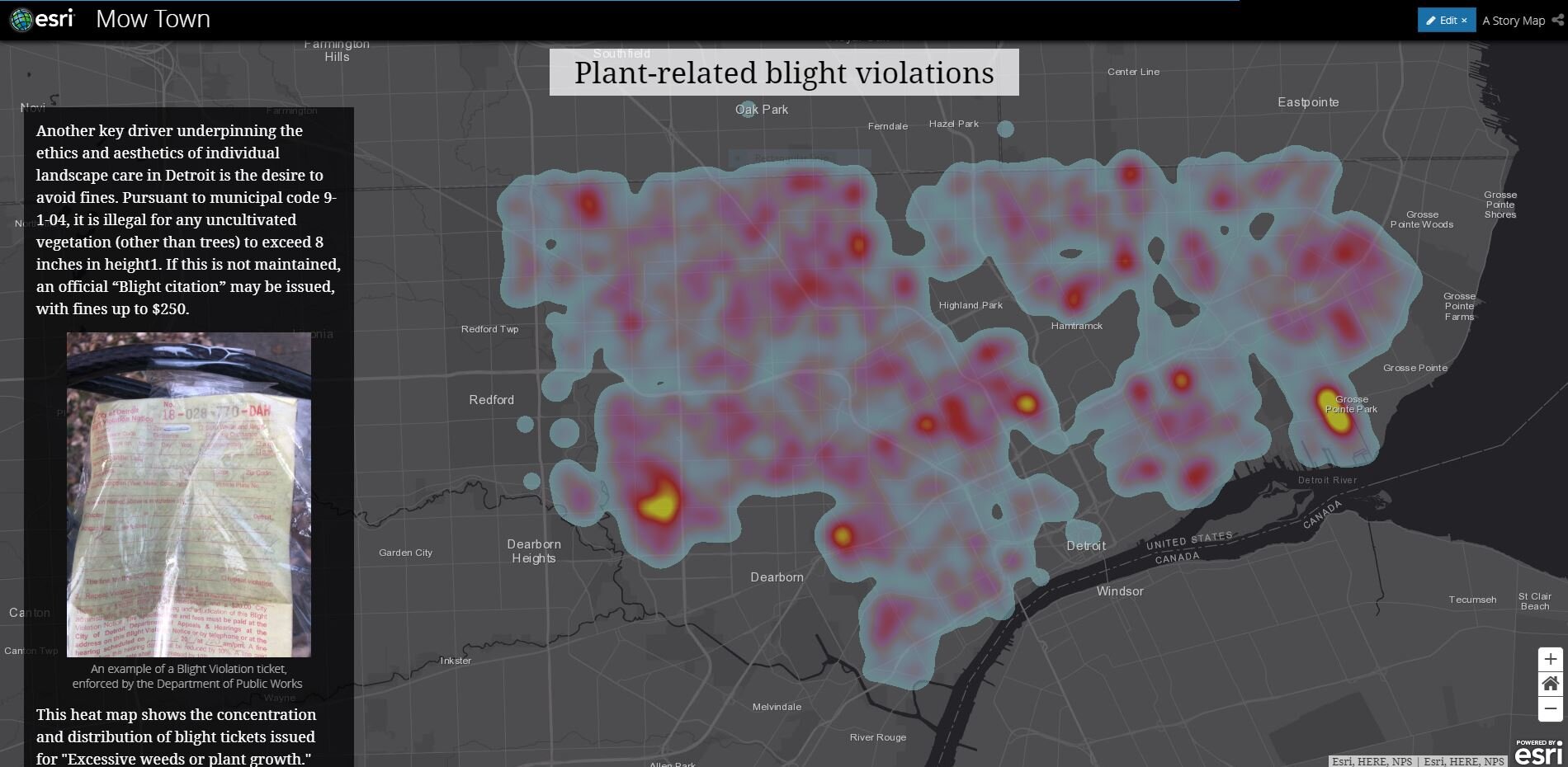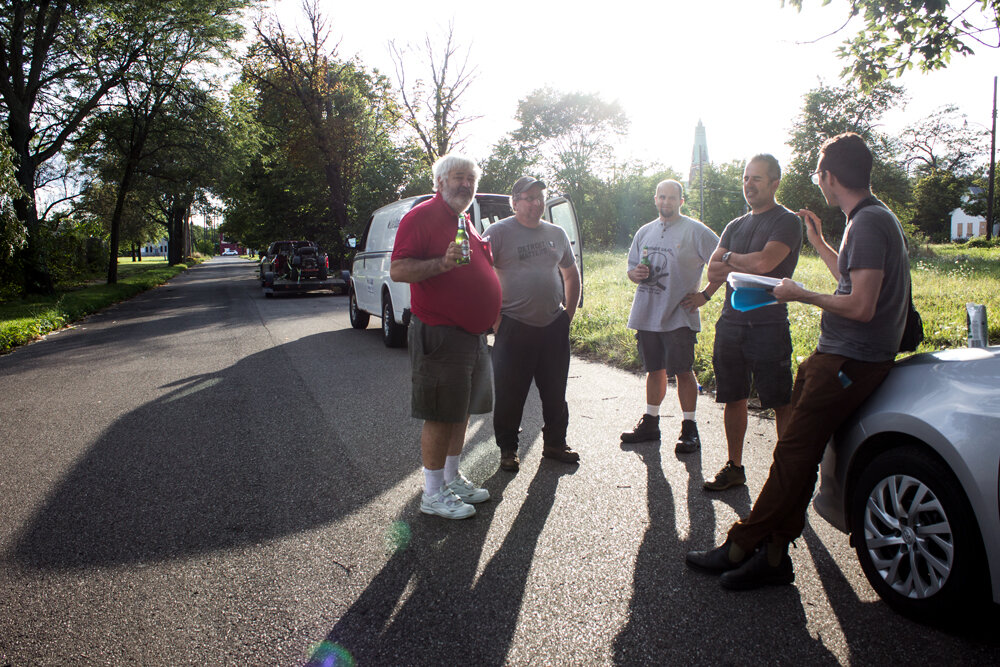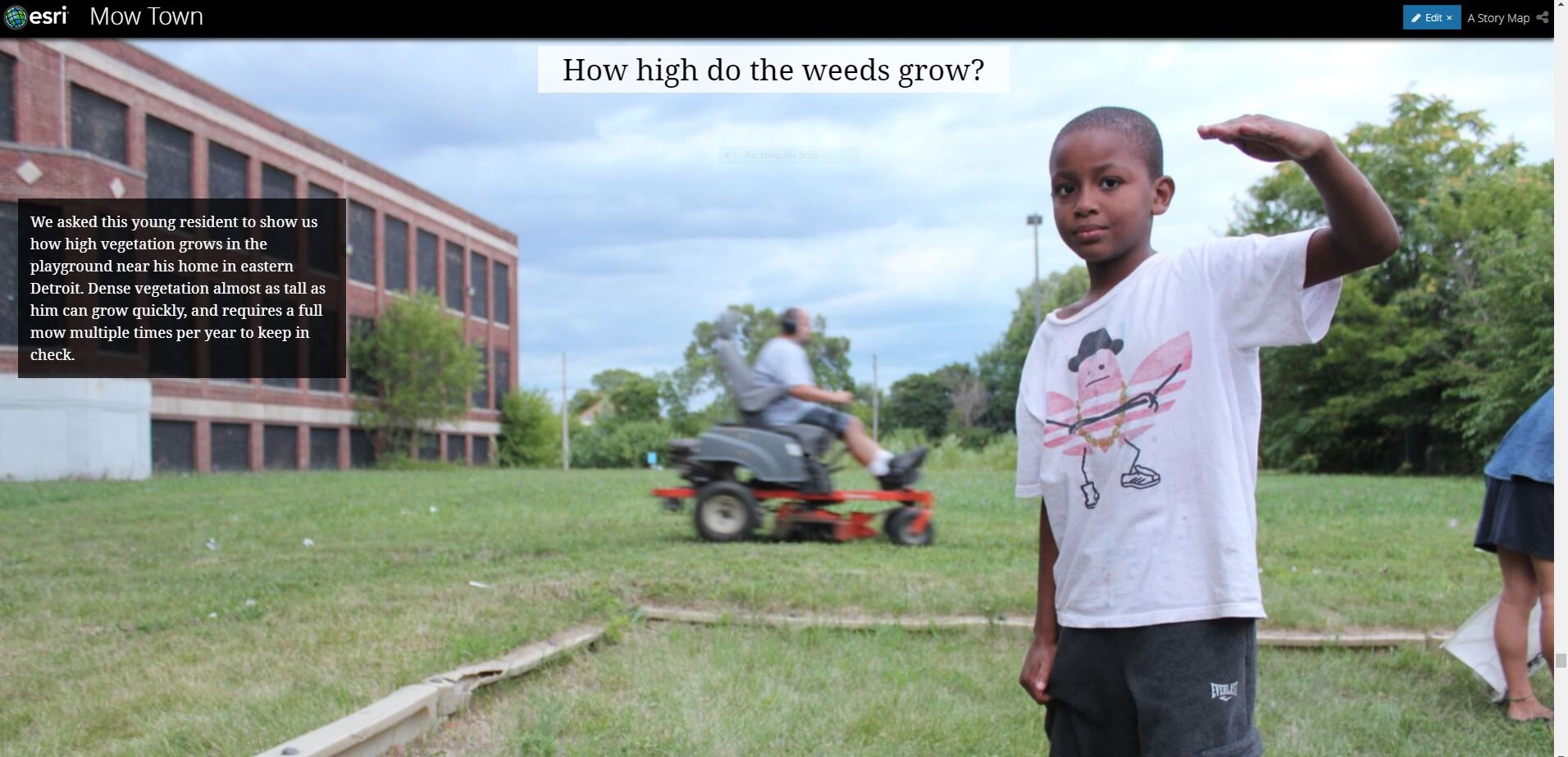We are thrilled to announce the recent completion of “Mow Town,” an interactive storymap which explores the emergence and management of spontaneous urban vegetation in the city of Detroit.
The project, funded by a Catalyst grant from the Graham Sustainability Institute, built on previous insights and research from COMMONSTUDIO’s Rustbelt Herbarium (see more about this work via our iNaturalist and Instagram). The “Mow Town” storymap brings together disparate sources of spatially explicit data and is the first of its kind for the city of Detroit. It is intended to be used as a communication tool for managers, citizens, and the design research community to guide the development of future landscape engagement strategies and maintenance regimes suited to the legacy cities of southeast Michigan and beyond. With this baseline of foundational understanding set, future engagement will focus on implementation, testing and iterating these new landscape management practices at various scales throughout Detroit, utilizing lands which are already maintained under the auspices of the local partner organizations (vacant lots, freeway medians, etc) as an active laboratory for social-ecological experimentation.
Our process involved the following modes of engagement:
Semi-structured phone and in-person interviews with landscape leaders
Followup field visits to various sites throughout the city to better understand and document practices and phenomena.
Synthesis of these findings and various data sources into the Mow Town storymap.
Findings
Selected key insights from the project includes:
4 basic typologies of landscape maintenance practices (see storymap)
4 basic categories of actors (see storymap)
The identification of one particularly interesting spatial typology/designation (the Community Open Space Park), which may be useful to target in future research and engagement projects efforts
Spatial territories and landscape maintenance resources roughly correspond to the core-periphery dilemma in Detroit, with some areas of overlap.
Blight violation “hotspots” (perhaps opportunity zones for future intensified engagement)
We want to thank the project partners which included the Detroit Mower Gang, the Downtown Detroit Partnership (DDP), the General Services Department of Detroit, and Brightview Landscapes for their participation.
We would also like to thank our co-PI’s Mark Lindquist (Assistant Professor at the Univeristy of Michigan’s School for Environment and Sustainability (SEAS), and Anton Reznicek, Assistant Director, University of Michigan Herbarium.





